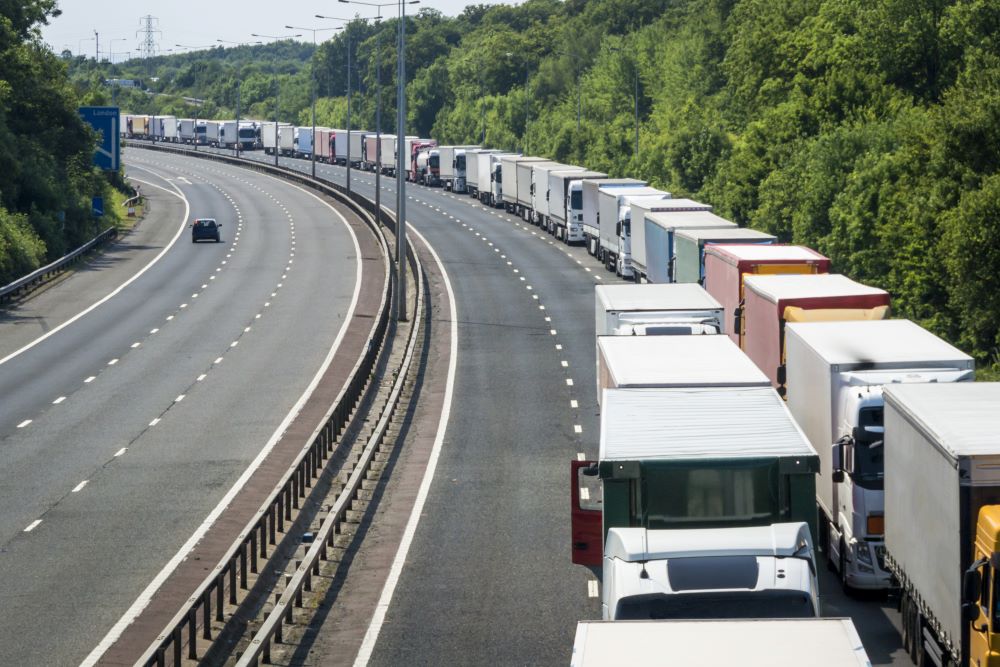
The UK’s logistics industry has urged the government to accelerate the development of its technical solution for avoiding lorry queues in Kent from the start of next year.
The Smart Freight System (SFS) – unveiled as part of the UK’s Border Operating Model for post-transition trade – is being designed to ensure that no trucks arrive at the UK border unless they are carrying the correct export documentation.
Streamline
Hauliers will be required to carry correct export declarations to successfully cross UK and EU borders from 1 January 2021, when the UK has left the EU’s single market and customs union.
Using SFS, drivers will be required to file in advance that they have completed the required paperwork before they travel to UK ports and could even face fines if they fail to do this.
Speaking to the BBC’s ‘Today’ programme yesterday morning (17 September), Logistics UK’s head of public policy Alex Veitch said that the industry “fully supports and endorses” the policy as a concept.
Time needed to prepare
The issue the industry has, according to Veitch, is that the delivery timetable is not moving quickly enough to give drivers time to prepare for using it.
Currently, less than a third of freight forwarders have any familiarity with the system, according to a survey published by the British International Freight Association (BIFA) earlier this week.
The system will be ready for beta testing next month, Veitch said, and will continue to be tested through December into the spring next year.
However, the industry will need time to learn how to use the system and may not be able to start doing so until the Christmas period under the current timetable.
Beta, but fully operational
The government has since insisted that the system will be ready in time for the end of the transition period, with a spokesman telling the BBC that the use of the term ‘beta’ is a standard labelling practice for a digital service that is, in fact, fully operational.
However, a leaked government memo, reported in the Guardian this week, revealed a “reasonable worst-case scenario” of queues of up to 7,000 lorries in Kent and two-day delays for goods crossing the channel.
Mission-critical
Veitch argued that a “change of delivery” is needed to ensure SFS could be live, operational and usable by the industry before 1 January 2021.
“This is a mission-critical system,” he said. “There will be full border controls being implemented by the EU for our exports from first of January. Hauliers will have to do safety and security declarations, know how to use port systems in France, Belgium and Ireland, and we’re doing this during the busy Christmas peak.”
“We’re leaning on SFS so much as it could reduce and possibly get rid of the border delays we’re all so worried about. But it needs the traders, the logistics industry and the systems to be ready.”



